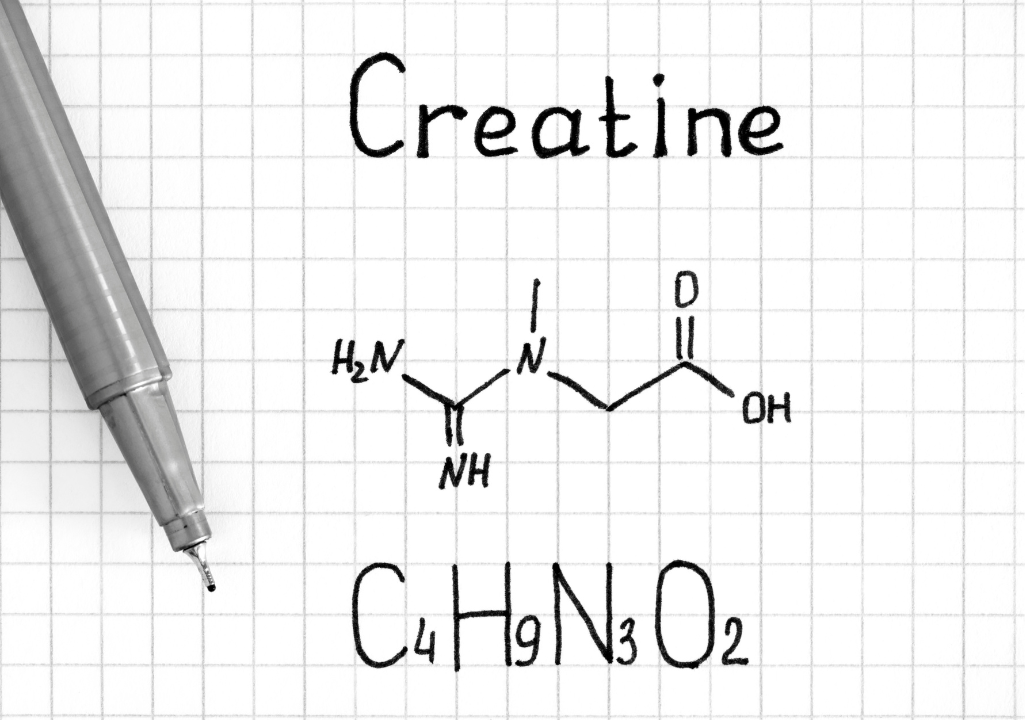
Is Creatine a Performance Enhancing Drug? Find Out!
Share
Creatine is one of the most talked about supplements in the fitness world, often associated with increasing strength, building muscle, and boosting workout performance. But there’s still confusion surrounding whether creatine is considered a performance enhancing drug (PED). Is it safe, legal, and ethical to use, or does it fall into the same category as banned substances?
In this post, we’ll dive into the facts about creatine, its role in improving athletic performance, and whether or not it’s considered a drug. Let’s clear up any confusion once and for all.
Creatine: Performance Enhancer or Drug?
You might wonder if creatine is a drug, especially since it’s often associated with enhanced performance. But here’s the simple truth: creatine is not a drug.
Creatine is a substance that naturally exists in your body. It’s stored in your muscles and used as a quick source of energy when you’re working out, sprinting, or doing any high intensity activity. Your body already produces it, and you can also get it from foods like red meat and fish.
So why do people supplement with creatine if it’s already in their bodies? The amount of creatine your body naturally produces or gets from food may not be enough to maximize your athletic performance. This is where supplements, like Gimme Gummiez creatine gummies, come into play. By taking a supplement, you can boost your creatine levels, which helps your muscles work harder and recover faster.
But to be clear, creatine is not classified as a drug by health or sports organizations. It’s a naturally occurring compound that’s perfectly legal to use, and it's widely accepted in the athletic world.
Creatine’s Power: The Truth About Its Performance Benefits
Now that we know creatine isn’t a drug, let’s get to the exciting part: how it enhances your performance.
Creatine supplements help boost the amount of energy your muscles can produce during short bursts of activity. Think about lifting weights, sprinting, or doing explosive movements like jumps, these are all activities where creatine can help you perform better.
Here’s how creatine works its magic:
- Quick Energy Production: Creatine helps produce ATP (adenosine triphosphate), which is the main energy source for your muscles. When your muscles run out of ATP, they get tired. But creatine helps regenerate ATP faster, giving you more energy to push harder.
- Increased Strength: Creatine has been shown to help increase strength, allowing you to lift heavier weights or complete more repetitions.
- Boosted Endurance: While creatine is most known for helping with short bursts of power, it can also help with endurance by improving how efficiently your body uses energy.
The performance benefits of creatine are backed by numerous studies and are considered one of the most reliable and safe ways to boost your workout results.
Creatine in Action: What It Really Does for Athletes
To truly understand the impact of creatine on your athletic performance, it’s important to know what’s happening inside your body when you take it.
Creatine’s main job is to support your muscles during high intensity activities. Let’s break it down:
-
Faster Muscle Energy Replenishment
When you’re exercising intensely, like during a set of heavy squats or sprints, your muscles use up ATP rapidly. Creatine helps your body produce more ATP quickly, so you can continue to push yourself. That’s why you’ll often hear athletes talk about creatine helping them “go the extra mile.” -
Support for Muscle Growth
Creatine doesn’t just help with performance during workouts, it also supports muscle growth. By drawing water into your muscle cells, it makes your muscles look fuller and creates an environment that promotes muscle repair and growth after exercise. Over time, this can lead to significant gains in muscle mass, which is one of the reasons athletes and gym-goers love it. -
Reduced Fatigue
One of the lesser known benefits of creatine is its ability to reduce fatigue during and after your workouts. By improving your body’s efficiency in using energy, creatine helps you perform longer and recover more quickly between sets, keeping your energy levels high for a longer period.
In short, creatine is a powerhouse supplement that works with your body to maximize performance and muscle growth, without the side effects associated with performance enhancing drugs.
How to Get the Most from Creatine: Maximize Your Performance
Taking creatine, like Gimme Gummiez blue raspberry creatine gummies, is just the first step. To really maximize your results, you need to know how to use it effectively.
-
Stay Consistent
Creatine works best when you take it consistently. Whether you're working out that day or not, creatine should be part of your daily supplement routine. Why? Creatine needs to build up in your muscles over time to work at its full potential. -
Pre or Post Workout?
There’s some debate over the best time to take creatine. Some people prefer taking it before their workouts for a performance boost, while others take it afterward to aid in recovery. The truth is, both approaches can work. What’s most important is that you’re taking it consistently. -
Hydration is Key
Creatine helps draw water into your muscles, which is great for muscle growth and recovery. But it also means that you need to stay hydrated. Make sure you’re drinking plenty of water throughout the day to maximize creatine’s effectiveness. -
Diet Matters Too
While creatine supplements can help, you’ll get the best results when combined with a balanced diet rich in protein, healthy fats, and complex carbohydrates. Creatine works alongside these nutrients to help your muscles repair and grow after tough workouts.
Myth Busting: Is Creatine Really a Performance Enhancer?
There are a lot of myths surrounding creatine, especially when it comes to whether it should be considered a performance enhancing drug. So, let’s debunk some of the most common myths:
-
Myth: Creatine is a Steroid
Truth: Creatine is not a steroid, nor is it related to steroids in any way. Steroids are synthetic compounds that can have harmful side effects and are often banned in sports. Creatine, on the other hand, is a naturally occurring substance found in your body and in certain foods. It’s completely safe and legal to use. -
Myth: Creatine Causes Dehydration
Truth: While creatine does cause your muscles to hold onto water, it doesn’t dehydrate you. In fact, as long as you’re staying properly hydrated, creatine can actually help with muscle hydration. -
Myth: Creatine is Only for Bodybuilders
Truth: Creatine is beneficial for anyone involved in high intensity sports, not just bodybuilders. From sprinters to football players, athletes of all kinds use creatine to improve their performance. It’s also helpful for anyone looking to increase strength or improve workout endurance. -
Myth: Creatine is Bad for Your Kidneys
Truth: Creatine is safe for healthy individuals. Numerous studies have shown that creatine does not have negative effects on kidney health when taken as directed. However, people with kidney conditions should consult with a doctor before taking any supplement.
Conclusion: The Real Power of Creatine
So, is creatine a performance enhancing drug? No, it’s not. Creatine is a safe, legal, and natural supplement that enhances athletic performance without the risks associated with banned substances.
With the right use, creatine can give you the edge you need to push harder, recover faster, and grow stronger. And with creatine gummies you can enjoy the benefits of creatine in a convenient and delicious form.
Remember, creatine isn’t just for bodybuilders or elite athletes, it’s for anyone who wants to maximize their workout potential and achieve their fitness goals. So why not give it a try and see the difference it can make in your training?
